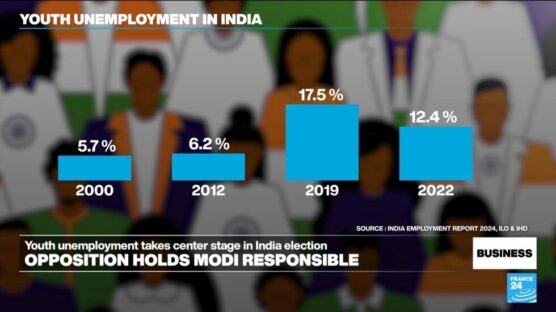Nigeria remains largest importer of rice in Africa despite interventions
By Channels
31 March 2018 |
7:00 am
Nigeria remains largest importer of rice in Africa despite interventions.
Related
Related
1 day ago
A school in the Nigerian administrative capital city of Abuja offers teaching to students at a 100 Naira ($0.86) per day. It enables poor parents and daily income earners to send their children to get secondary school education.
2 days ago
Find these stories and much more when you grab a copy of The Guardian on Wednesday.
8 hours ago
Private sector players are urging the Nigerian government to suspend the increase in electricity tariff for band A customers, citing the recent appreciation of the naira, a part of the determining factor for the tariff. Segun Ajayi-Kadir, Director General of the Manufacturers Association of Nigeria, joins CNBC Africa for this and more.
1 day ago
Tunde Onakoya, the Nigerian Chess expert who smashed the previous Guinness World Record for the longest chess marathon has returned to Nigeria. The founder of Chess In Slums Africa broke a new record of 60 hours of playtime in New York’s Times Square last Saturday, which is still receiving confirmation from GWR.
1 day ago
Find these stories and much more when you grab a copy of The Guardian on Thursday.
7 mins ago
After years of a successful sporting career, Nigeria’s four-time kickboxing gold medalist, Jibrin Inuwa Baba, pays homage to his town Kano where he meets his coach at the Dambe boxing arena. His hope is to see young athletes equally succeed in their boxing career.
Latest
5 mins ago
Eye on Africa tours the Hope Hostel in Kigali. It's one of the lodgings prepared by Rwanda to take in migrants deported from Britain, the first of whom could arrive in a few months' time under a controversial policy.
1 hour ago
As India's opposition leader Rahul Gandhi claims on the campaign trail that Prime Minister Narendra Modi has made the country into a "centre of unemployment", we look at the situation that young Indians face on the job market. Also in this edition, the US will see its first high-speed rail line in 2028, when commuters will be able to travel from Los Angeles to Las Vegas in just over two hours.
1 hour ago
The European Commission on Wednesday announced it is launching an investigation into Chinese public procurement of medical devices.
4 hours ago
Guardian Woman Festival: Fostering inclusion and empowerment in aviation.
8 hours ago
Amnesty International is accusing Israel of a flagrant disregard for international law during its offensive in Gaza. The organisation's annual report says the situation is being compounded by the failures of Israel's allies to stop the indescribable civilian bloodshed being seen in the Palestinian enclave.
8 hours ago
The president of the Confederation of African Football (CAF) Patrice Motsepe discussed his ambitions for African football and his tenure as CAF president.
×

Get the latest news delivered straight to your inbox every day of the week. Stay informed with the Guardian’s leading coverage of Nigerian and world news, business, technology and sports.


















0 Comments
We will review and take appropriate action.